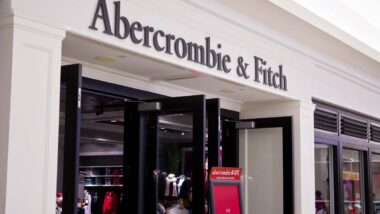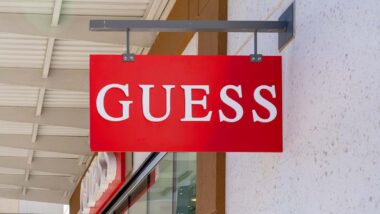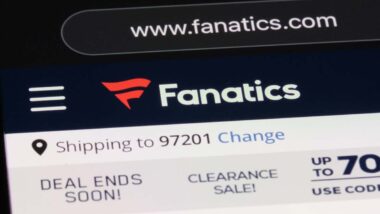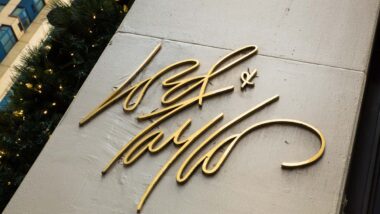Top Class Actions’s website and social media posts use affiliate links. If you make a purchase using such links, we may receive a commission, but it will not result in any additional charges to you. Please review our Affiliate Link Disclosure for more information.
A California woman has filed a class action lawsuit against Cole Haan, accusing the retail outlet of creating fake sale offers from “original” prices that never existed.
Plaintiff Teresa Adams says she went shopping at a Cole Haan outlet store in California to purchase new shoes. She claims that she settled on a pair of size 7 women’s Original Grand suede shoes. She states that the sale price of the shoes was listed as $60, down from the original price of $150.
Adams states that she decided to purchase these particular shoes because they were a good bargain. The original price and the corresponding “sale price” led her to believe that she was purchasing authentic Cole Haan merchandise that was recently available at Cole Haan stores, she alleges.
However, Adams found out that her shoes were never offered at the original price listed on the price tag and were not offered at those original prices within the 90 day time period preceding her purchase, which is required by California law.
The plaintiff maintains that she was unaware that the vast majority of the products sold in the defendant’s Cole Haan outlet were manufactured specifically for the outlets and were not sold anywhere else.
“Plaintiff was damaged in her purchase because Defendant’s false reference price discounting scheme inflated the true market value of the shoes she purchased,” the Cole Haan fake sale class action lawsuit says.
Adams alleges that she would like to continue to shop at the Cole Haan outlet, but she cannot be certain that the defendant has corrected this deceptive pricing scheme.
The practice of false reference pricing happens when a retailer fabricates a false “original price” and then offers an item for sale at a “discounted” price, Adams says. The result of this scheme is a fake price disparity that misleads customers into believing that they are getting a good deal and is induced to making the purchase.
The plaintiff argues that this practice artificially inflates the true market price for the items by raising the consumers’ inner price reference and therefore the value related to these products by the consumer.
Adams points to an example of a retailer who knows that it can sell a suit at a retail cost of $250. The $250 represents the “market” price for the suit.

The plaintiff says, by offering the price of the suit at $1,000, the retailer has increased demand of the suit through the perceived value of the item.
Thus, through the use of a false original price and the corresponding phantom discount of 70 percent off, the retailer was able to create a false “market” price for the suit at $300.
“Retailers, including Cole Haan, substantially benefit from employing false reference pricing schemes and experience increased sales because consumers use advertised reference prices to make purchase decisions,” the fake sale class action lawsuit goes on to say.
Information available to consumers vary for different types of products, but consumers usually lack full information about the item and, as a result, rely on information from sellers in order to make purchasing decisions, the plaintiff states.
Adams points out that consumers place some value on the psychological experience of obtaining an item at a perceived bargain. She also states that retailers understand that consumers are susceptible to a good bargain and that the defendant has a substantial financial interest in making the consumer believe that they are receiving a good bargain, even though they are not.
“A product’s reference price matters to consumers because it serves as a baseline upon which consumers perceive a product’s value,” Adams says.
The plaintiff also maintains that, under California law, a retailer cannot use an old, outdated “original price” as a basis for a sale or discount, unless it discloses to the consumer the date on which the prior original price was offered to the market.
Cole Haan allegedly engages in this practice knowing full well that the advertised products are never actually sold at the reference price and are never sold at the advertised reference prices within 90 days of them being discounted at the Cole Haan outlet store.
Adams says that Cole Haan is in violation of California’s Unfair Competition Law, California’s False Advertising Law, California Consumer Legal Remedies Act, and the Federal Trade Commission Act.
Did you purchase items at Cole Haan thinking that you were getting a discount? Leave a message in the comments section below.
The plaintiff is represented by Todd D. Carpenter and Scott G. Braden of Carson Lynch LLP.
The Cole Haan Fake Sale Class Action Lawsuit is Teresa Adams v. Cole Haan, Case No. 8:20-cv-00913, in the U.S. District Court for the Central District of California.
ATTORNEY ADVERTISING
Top Class Actions is a Proud Member of the American Bar Association
LEGAL INFORMATION IS NOT LEGAL ADVICE
Top Class Actions Legal Statement
©2008 – 2024 Top Class Actions® LLC
Various Trademarks held by their respective owners
This website is not intended for viewing or usage by European Union citizens.
















21 thoughts onCole Haan Class Action Alleges Fake Sale Pricing Scheme
Add me please